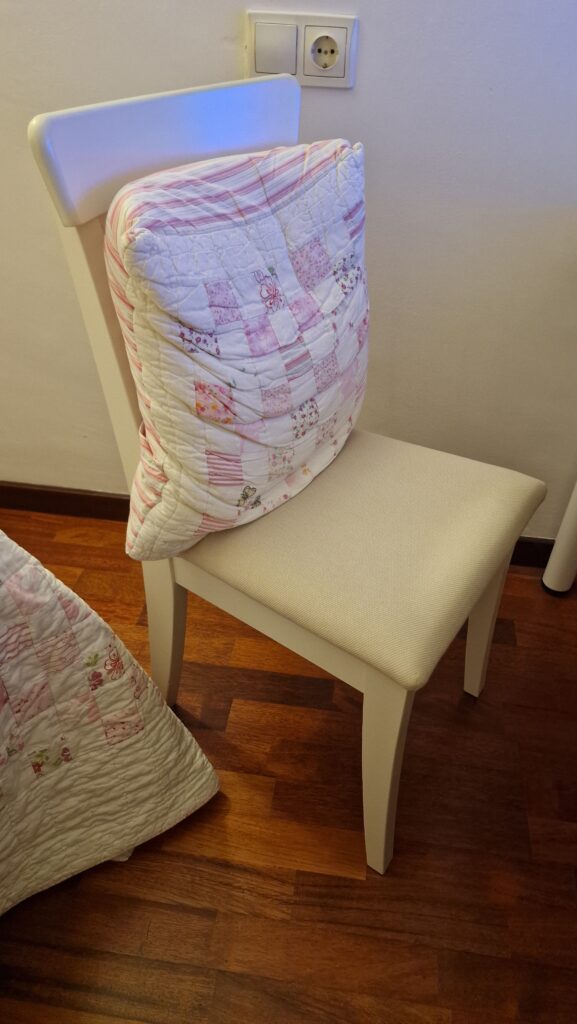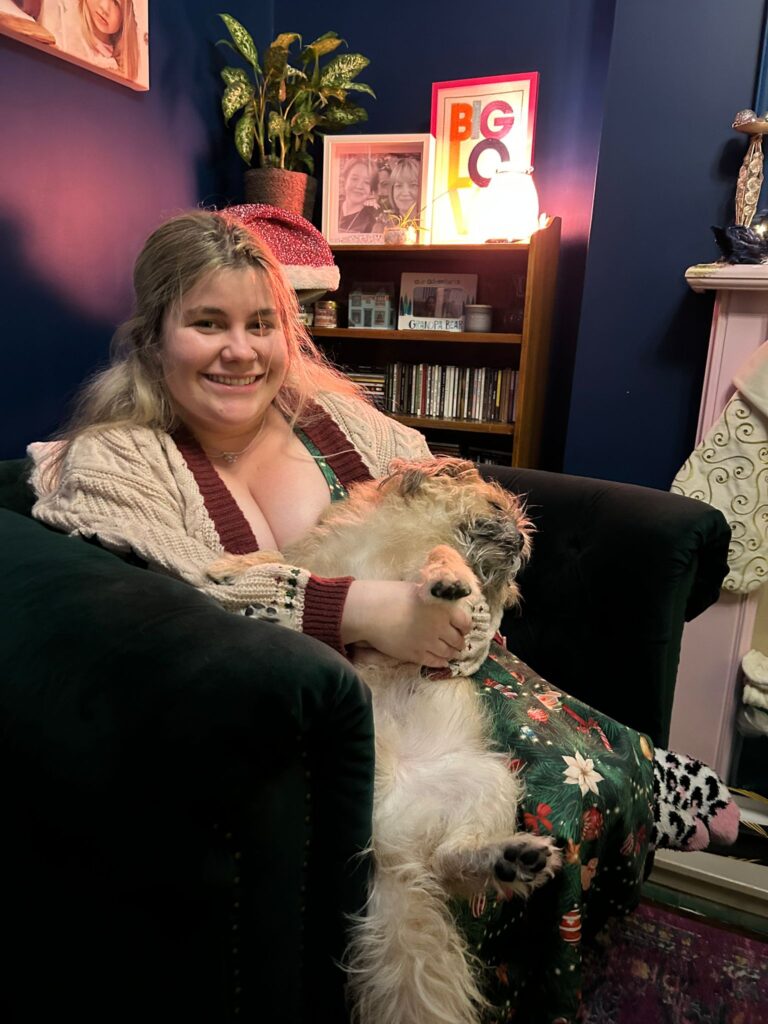My Brother Spread Your Ashes Today, After I Toted Them Around in My Rental Cars for Over Five Years
January 11th, 2026
by Chantelle Tibbs
the 3rd of August, 2025
Dear Dad,
I don’t know if I’ll dream of you as often, now.
Chris and mom spread your ashes in the Menantico Creek. I heard tell you thrived and jived there, once upon a time.
At least I look like you, Dad. Maybe gay. Maybe Black. My hair is in style, the freckles you passed down are endearing. I’m ambiguous in these uncertain times. It’s hot, right now. I have at least half of you to thank for that.
Most of the dreams I have of you are uncomfortable. I tell people about the dreams I would order up of us eating pasta together. Then of course you wanted that pizza we ate on those beautiful green patio chairs of a porch I can’t seem to access anymore. They started off that way but eventually devolved into— us. Now I close my eyes to men circling like sharks as you scream your whisper in my ear, “I’m so sorry.” I don’t know why I’m willing to tell people the truth of how it was to be your daughter in life and can’t seem to get around to fixing the truth about how even the astral experience of being your first born haunts me.
You’re free now, I suppose, I only have hunches and fleeting guesses. There were good times I know. I get it. I should hold onto those but what I really want to tell you right now is, the messy way in which you loved me made it dangerous for me to be alive.
You imprinted your trauma upon me. Holding romantic relationships is near impossible. Those I am drawn to are trouble. Trouble just recycling those ol’ familiar patterns. The dysfunction of being pulled in by toxicity, the complete madness, the loneliness. The danger. Being a single mom, dangerous. For myself and for your grandson. Less protection. That tidy little family structure the world flaunts, inaccessible. Like the tiny home I dared to dream up just within my reach, held hostage, alongside my patience and any chance of staying dry on some rainy day. I have to make sure I don’t get pregnant by the wrong guy. One income, one child. Dangerous. One income, two children? Poverty is death and I’d get to watch my kids sink into the Earth along with me.
Our country is gone. She may as well just hurry up and die already but it’s natural for good people to have hope. It’s part of the package. Her demise has made things even more perilous. This isn’t the time to make mistakes or come upon misfortune. Not with one income. One misstep could ruin us. I’m enduring the aftermath of doing pretty much everything right and still falling on hard times. Dangerous. Every time I fall in love, impact, wreckage. A burden as heavy as your ashes.
As a child, I made the perfect target for statutory rape you’d blame me for while I sought a present father figure. As an adult— Emotionally unavailable women and men, women and men who are reliable only if I sign over control. Fascinating. How these lovers are in touch with every micro ounce of a sabotaging stench I just can’t wash away. The cult. Most dangerous. The “therapist.” Another wet patch of pavement meant for the unsuspecting wheels that turn all of this. Loving you cost me so much. Being your daughter is a price I am still paying.
Maybe without having to carry your ashes around in the trunk of my rental cars I’ll be able to put down a little more of these other weighted burdens.
I love you. Always will and all that. Just here sitting in what can be salvaged of our legacy.
Chantelle
Back to the 2026 Flash Suite Contest
More Contests from Defenestrationism.net
What’s New
home/ Bonafides



Our sphere